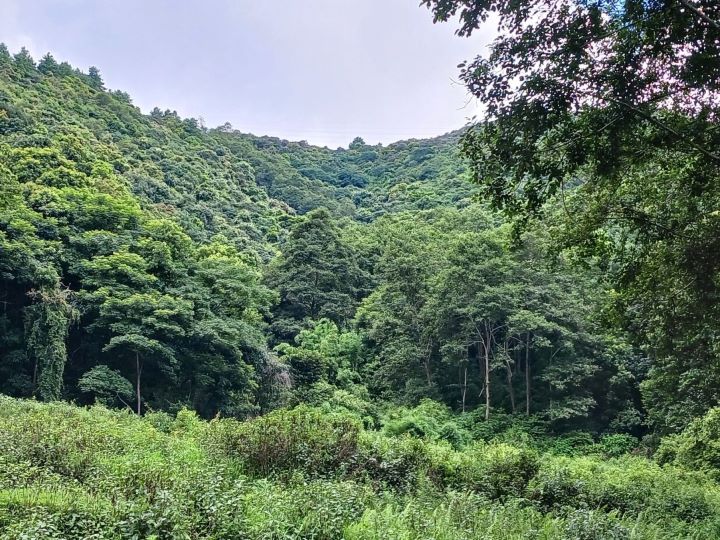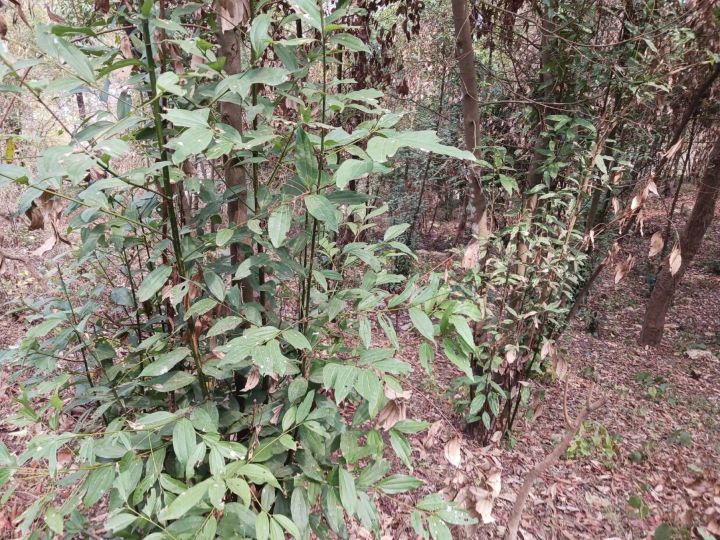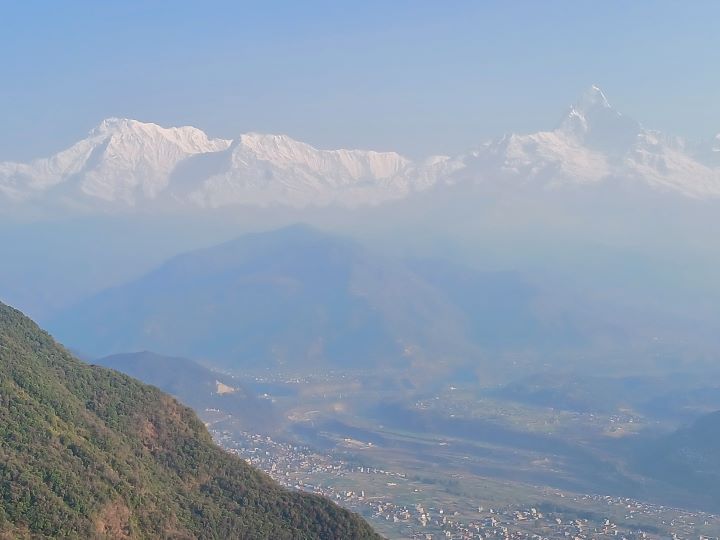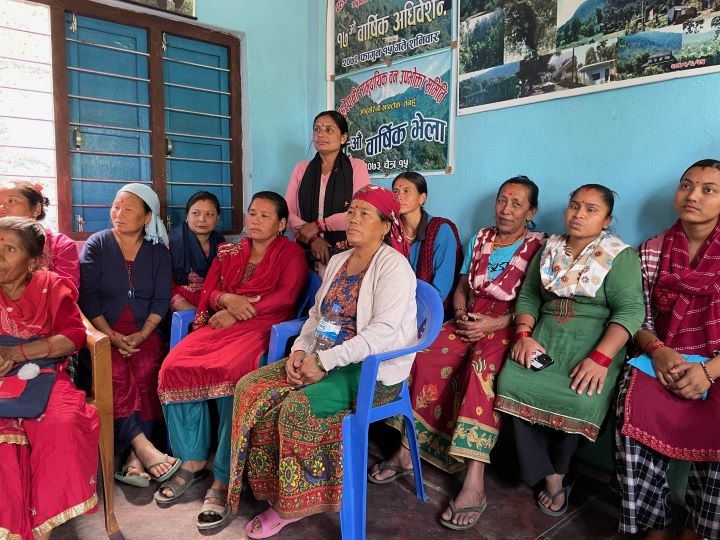Protecting Forests with Inhabitants: The Case of Nepal

2024.04.11
-

- Hanai Akane Senior Deputy Director Forestry and Nature Conservation Group Global Environment Department
In recent years, there have been constant reports of heat waves, droughts, floods, forest fires, and rising sea levels caused by global warming all over the world. According to the Food and Agriculture Organization of the United Nations (FAO), if deforestation, caused by unplanned mass logging, and that illegal logging around the world were halted and forests were properly managed, it is estimated that a reduction of 3.6 gigatons of CO2 emissions annually by 2050 could be made, which would help protect half biodiversity on the planet. In addition, by conserving forests, we can also expect to maintain their multifunction, such as water source recharge, soil conservation, and disaster prevention and mitigation.
I would like to introduce JICA's Forest Conservation Cooperation in Nepal, which greatly contributes to achieving SDG goal 15, a key contribution in “conserving life on land”.
Last month, in mid-March, I went on a one-week trip to Nepal to follow-up on the progress of our forest conservation project that JICA has been implementing in Nepal since 2022. Nepal has a history of rapid growth of its population, uncontrolled logging due to multiple development projects, and excessive use of forest resources, resulting in a rapid decline in forest area.

Aiming to restore forest coverage, JICA initiated full-scale technical cooperation in the forestry field since 1991, implementing a "Social Forestry" Approach, in which locals take control of forest management. JICA supported the implementation of forest conservation and afforestation activities, mainly in village areas, while enhancing local inhabitant autonomy. As a result, with JICA's cooperation and the contribution of other donors in afforestation and other forestry projects, the forest area has recovered from 29% to 41% of the total area.

More recently however, the effects of climate change have become more visible, with the disruption of rainfall patterns, and an increase in landslides and large-scale damage caused by torrential rains, which were not common in the past. Against this situation, in 2022, at the request from the Nepalese government, JICA launched a new project to improve the soil conservation function of forests.
While on the field visit of the project, my colleague and I took a one-hour flight from Kathmandu, the capital of Nepal, to Pokhara, Gandaki Province, and another three hours trip by vehicle to Tanahun District and Shanja District, both located in central Nepal. In these two village areas, I should note that the project stakeholder meetings were almost exclusively attended by women, as husbands and young men in their prime go to work in urban areas and outside the country.

In the past, most of the forest conservation was led by men, but as the number of men and young people in rural areas continues to decrease, the forest conservation activities are handled mainly by women. In response to this situation, JICA is conducting its activities with an emphasis on revitalizing villages, while at the same time making it easier for women to be visible and express their opinions in public, hence creating an environment where their opinions are respected.
Also, a decade ago, women used to collect firewood from community-managed forests for household fuel. In recent years, with the spread of gas stoves, the demand for firewood has decreased significantly, and the need for forest resources themselves is not as great as it used to be.

During this trip, we interviewed these women on their current situation and future needs. Through these interviews, we learned that they envision to make products, using forest resources, more attractive in the market so that they can earn cash income. And for that reason, they need to grasp the current needs of the market and how to sell their products. They also requested assistance in analyzing sales channels and marketing methods to support sales. We realized the importance of incorporating these needs into activities of the Project.
It was a good opportunity for us to reevaluate the importance of JICA's sustainable forest conservation cooperation by accurately grasping the changes in the social structure of the partner countries and by finding out how people live within the forests, while carefully listening to their real needs.
scroll